Current Lab Members
Principal Investigator

Jonathan P. Jacobs, MD, PhD
Co-Director, Goodman-Luskin Microbiome Center
Associate Professor-in-Residence
Vatche and Tamar Manoukian Division of Digestive Diseases
David Geffen School of Medicine at UCLA
Dr. Jacobs graduated magna cum laude with highest honors from Harvard University with an AB in biochemistry. He subsequently received his MD from Harvard Medical School, graduating magna cum laude in a special field. During college and medical school, he trained in the laboratory of Diane Mathis and Christophe Benoist where he investigated the immunologic mechanisms of an autoantibody-mediated model of arthritis. This research was supported by a fellowship from the Howard Hughes Medical Institute. He completed a residency in internal medicine at Stanford University then joined UCLA as a gastroenterology fellow in 2010. He pursued additional scientific training at UCLA through the Specialty Training and Advanced Research (STAR) program under the mentorship of Jonathan Braun. He was awarded a PhD in cellular and molecular pathology in 2015 for his research on the intestinal microbiome and afterwards joined the UCLA Division of Digestive Diseases faculty. He established the UCLA Microbiome Core in 2016 - which provides a comprehensive suite of microbiome-related services to support microbiome research by the UCLA scientific community - and is now co-director of the Goodman-Luskin Microbiome Center.
Dr. Jacobs’ research explores the role of intestinal microbes in the development of inflammatory bowel disease (IBD), obesity, and other disorders. This involves a translational approach that includes detailed characterization of patients’ microbiome by sequencing and metabolomics as well as modeling of the effect of disease-associated human microbial communities in humanized gnotobiotic mice (i.e. germ-free mice colonized with human microbiota). He has published over 125 original research articles and reviews in scientific journals including Gut, Gastroenterology, Microbiome, Cell Host & Microbe, Gut Microbes, Genome Medicine, Cellular and Molecular Gastroenterology and Hepatology, Scientific Reports, and Proceedings of the National Academy of Science. His ongoing projects employ animal models and multi’omics analysis of patient cohorts to define the role of IBD-associated genes in shaping the intestinal microbiome and to identify microbes and microbial products that promote IBD and obesity.
Laboratory Supervisor
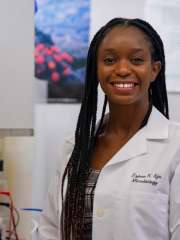
Ezinne Aja, PhD
Dr. Aja is a researcher who has a passion for microbiology. She enjoys working with bacteria—especially anaerobic bacteria and is also interested in the role of the microbiome in various disease states. She studied microbiology in her undergraduate degree and obtained a PhD in microbiology and molecular genetics. Her doctoral work evaluated the role of various genes in oxidative stress resistance in oral bacteria and she assigned function to a hypothetical protein in Filifactor alocis.
Microbiome Core Manager

Shrikant Bhute, PhD
Dr. Bhute obtained his PhD from Savitribai Phule Pune University, Pune, India in 2017. His doctoral work involved characterization of healthy Indian microbiome and its association with the type-2-diabetes. He then moved to University of Nevada Las Vegas (UNLV) for his postdoc in Dr. Brian Hedlund's lab. In the Hedlund lab, Dr. Bhute worked on mouse and hamster models of Clostridioides difficile infection (CDI) and suggested that high-protein diet exacerbates the CDI outcome, whereas the high-carbohydrate diet was mostly protective in mouse model. Interesting observation from this study was that although the high-carbohydrate diet was protective, it led to the long-term carriage of C. difficile in both the animal models, indicating a complex interaction between diets and outcome and severity of CDI. After his first postdoc, Dr. Bhute moved to the Center for Microbiome Innovation at UC San Diego where he worked as a postdoc on the industry-sponsored projects related to the host DNA depletion from metagenomic samples. He was actively involved in the development of novel methods for depleting host DNA from metagenomic samples. Overall, Dr. Bhute has over twelve years of experience in microbiome science and published over 25 scientific papers related to microbiome and microbial ecology of human gut and other habitats in reputed journals.

Besma Chaudry
Besma earned her BS in general biology with a minor in political science from UC San Diego. She is currently a PhD student in UCLA’s Molecular, Cellular, and Integrative Physiology program, investigating how gut microbiome disruptions contribute to gastrointestinal pathology. Her research uses multi-omics, mouse models, and intestinal cell culture systems to study how genetic and environmental factors drive inflammatory pathways in Crohn’s disease and related conditions.
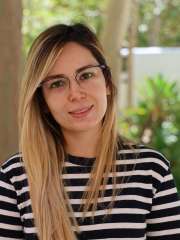
Mary Ghasemi, MD
Mary obtained her MD degree in Iran and worked in an emergency department during the chaotic and challenging times of the COVID-19 pandemic. After immigrating to LA in search of a more peaceful work environment, she discovered her passion for research. Recognizing that her medical background could open doors to the world of laboratories and contribute to scientific progress, she joined the Jacob's Lab in October 2023.
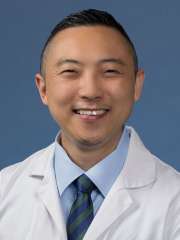
Sohn Kim, MD, PhD
Dr. Kim received his BA from UCLA, MD and PhD from Weill Cornell, and completed his IM residency at UCLA. For his graduate studies with Dr. Eric Pamer, he studied and identified a mechanism of the intestinal microbiome in mediating colonization resistance against specific pathogens. He is currently studying the intestinal microbiome and its potential roles in metabolism, obesity, colorectal cancer and IBD. This training is supported by the UCLA STAR program and a NIH T32 UCLA GI training grant.

Mericien Venzon, MD, PhD
Dr. Venzon received her PhD in immunology and MD from NYU. Her doctoral work in the Ken Cadwell Lab was the first study to demonstrate the utility of C. elegans as a model for studying intestinal helminth-microbiome interactions in human disease and characterized the role of gut microbial metabolites in the reproductive success of free-living and parasitic nematodes. Currently, she studies the gut microbiome to prevent and better manage atopic and allergic diseases in children.

Sai Alapati
Sai is currently a second year studying molecular, cellular and developmental biology at UCLA. He joined the Jacobs Lab to pursue his interests in the complex relationships between digestive diseases and human microbiomes as well as to explore other avenues related to the digestive system. He plans on attending medical school after graduating from UCLA and pursuing a medical career related to gastroenterology.
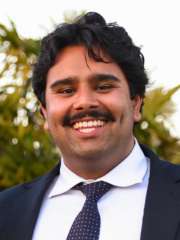
Aikam Basi
Aikam is a third-year undergraduate at UCLA studying psychobiology. He joined the Jacobs Lab in the Summer of 2024 due to his keen interest and personal experiences with Crohn's disease and IBD.
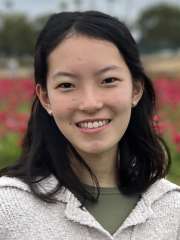
Emily Chen
Emily is a third-year undergraduate student studying molecular, cell, and developmental biology at UCLA. Emily has a passion for research and joined the Jacobs Lab to learn more about the human microbiome and bioinformatics approaches to studying the microbiome.

Ryan Chung
Ryan is a second-year undergraduate studying human biology and society from Diamond Bar, California. He joined the Jacobs Laboratory to explore the influence of the human microbiome on digestive health. After graduating, he plans to attend medical school.
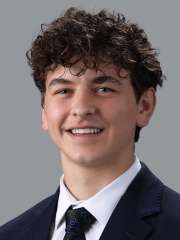
Kaden Connelley
Kaden is from Vacaville, California, and is currently studying microbiology, immunology, and molecular genetics at UCLA, with a minor in Chinese language. Motivated by a personal connection to inflammatory bowel disease, he joined the Jacobs Lab in October 2022 to develop a better understanding of the gut microbiome’s role in chronic disease.

Lachlan Guo
Lachlan is a first-year biochemistry major from San Mateo, CA. He joined the Jacobs Laboratory to gain experience in gastroenterological research and contribute to the field. Lachlan aspires to become a GI physician-scientist.
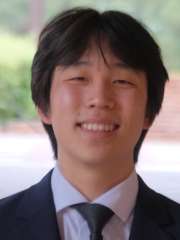
Mason Moon
Mason is from Santa Clarita, California, and is currently studying psychobiology as an undergraduate at UCLA. He joined the Jacobs Lab to explore his interest in Crohn's disease and its relation to the gut microbiome. He plans to attend medical school after graduation.

Arhan Surapaneni
Arhan is a public affairs major with plans to attend medical school in the future. He joined the Jacobs Lab due to a passion for bioinformatics and computation. He has a deep interest in the brain-gut axis, particularly how environmental factors like mental health and food insecurity impact the gut microbiome, and how this can lead to different disorders. He is passionate about understanding the interconnectedness of these factors to address broader public health issues.

Amber Zeng
Amber is currently majoring in molecular, cellular and developmental biology and minoring in philosophy. She joined the Jacobs Lab in her second year to study how the microbiome impacts human health and disease. Since then, she has become particularly fascinated by the role of specific bacteria in the development of inflammatory disorders like obesity. Amber plans to pursue an MD-PhD after graduating and continue conducting microbiome research in the future.

Hannah Alltucker
Hannah graduated from UCLA with a BS in biology. Her motivation to join the Jacobs Lab was inspired by personal experience and a family history of gastrointestinal disease, which has fueled her interest in the study of predictive disease indicators as they relate to the gut microbiome. She hopes to continue pursuing her passion for gut-related health and other forms of preventative medicine by attending medical school in the future.